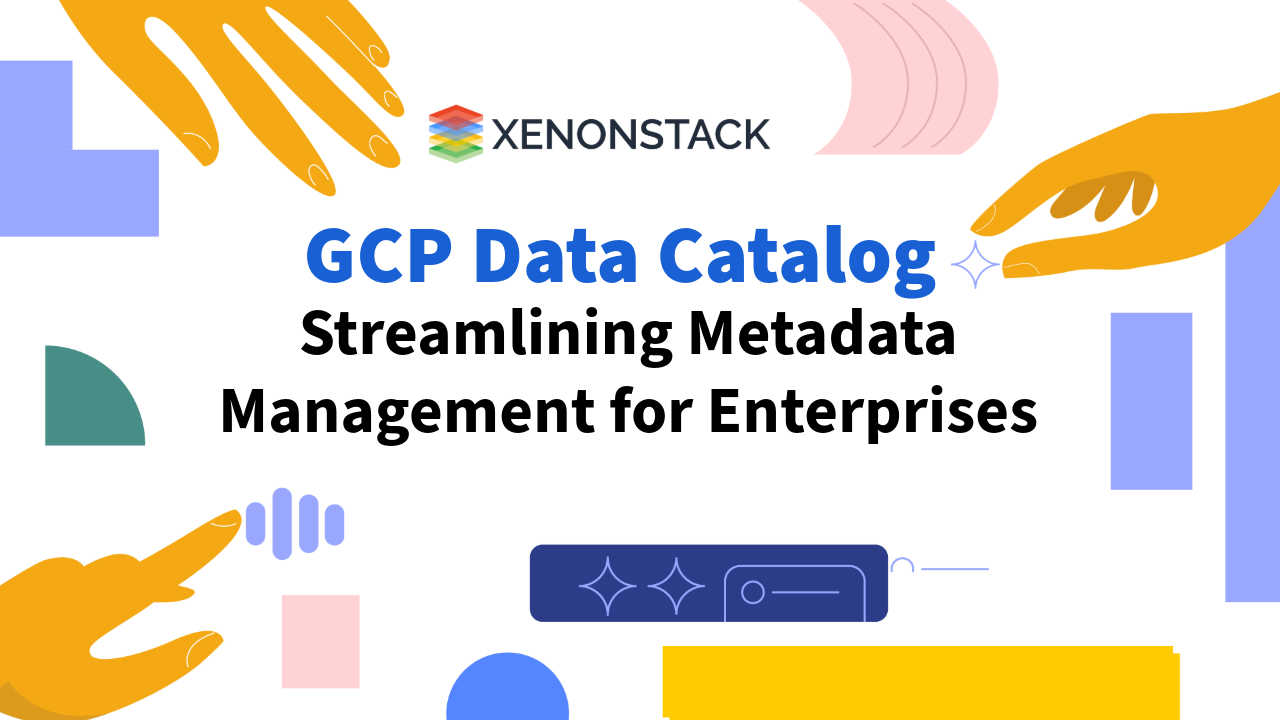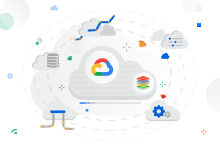
Data Catalog on Google Cloud Platform (GCP)
Google Cloud Platform Data Catalog is quickly becoming a leading solution for metadata management, offering robust availability on Google Cloud. As a widely adopted platform for data management, its importance has grown significantly. But why is it so essential? What are the key concepts associated with the GCP Data Catalog? Let's explore and understand.
What is Data Catalog?
It is responsible for the maintenance of data assets. It records discovery, organization, and dataset descriptions. It enables data analysts, scientists, and other consumers to query and use data from the datasets and understand them. It is responsible for maintaining an inventory of data assets through the discovery, description, and organization of datasets. It provides a meaningful context to enable data analysts, scientists, and other data consumers to search and to be able to understand a relevant dataset to extract business value.
Demand for data catalogs is soaring as organizations struggle to inventory distributed data assets to facilitate data monetization and conform to regulations. Source: Gartner, Inc
It provides stakeholders with context to find and understand data. It also automates data management and thus makes it collaborative. A good data catalog must be chosen with key capabilities filtered out, as all these are not the same. The most famous rely upon the key components that help to make the data strategy successful.
Why use it?
It is not only helps an organization to be able to handle the data more efficiently but also gives the data a new and refined structure. Some key aspects of having an enterprise data catalog are:
Immediate Search and Access to Relevant Data
The enterprise does not have to worry about managing all its users and handlers to be aware of all the data, as the analyst can only figure that out after searching that data.
Speed and Ability of Self-Service
The analyst can now search for data themselves and does not need to be dependent on a team of IT professionals to do so for them.
Faster Metadata Operations
To preview the data and profile it, analysts can debug and resolve the data faster and easier. This improves the confidence and trust of the data available to the analysts.
Having a Meaningful Context
For a data analyst to find relevant data and have description access, viewing business metadata and term definitions makes it a smoother analytical process.
Increased Metadata Protection
Instead of having a professional mask in each data region, columns now run the rules automatically based on the stored data classification.
The complete collection of metadata, with various data management tools combined with it. Click to explore about, Data Catalog for Hadoop with Use-Case
What is Google Cloud Platform (GCP)?
In the case of GCP, it is managed by Google Cloud and is a centralized service. It builds and manages an optimized index for searching data assets such as datasets, views, tables, files, streams, and spreadsheets. It uses the metadata of these assets to build up the index. Update or storage of assets causes them to be updated or created and later be changed in the source systems. First-class citizens here include Privacy and information in the index. Go through some terms related to the GCP Data Catalog below:
Search Catalog
This can be seen as the first contact point with the cataloging process's data. Search Catalog in GCP is quite simple to use and very powerful. When there is a search query for the catalog, a result set is built and returned to the user. These are actually just summaries of the actual assets that are being indexed. These result sets include search result Subtype, relative resource name, and linked resource fields for the indexed assets. ENTRY and TAG_TEMPLATE are some of the main search result types in the result set.
Get Entry
This operation is performed to retrieve even more information related to a given data asset. Here, we receive a relative Resource Name field that includes a name parameter being represented by a Search Result. There would be one or more catalog entries for each result returned by the Search Catalog. The schema field stores a table column schema for an entry referring to a table, but it is available in the entries that refer to datasets.
Lookup Entry
Say we already know the name of the Data asset to which we want to fetch data related to. Here, we perform a catalog search with Lookup Entry, which allows us to go from the asset’s name to the catalog entry in just one step.
Tags and Templates
Tag is the native entity of it. It allows users and automates processes to attach more metadata to any given data asset index using the catalog, making it easy to find them in any future query.
A single self-service environment to the users, helping them find, understand, and trust the data source. Click to explore about, Guide to Data Catalog Tools and Architecture
What are the capabilities of it?
It can be seen as one of the Data Governance framework components and has integrated data quality and analytics capabilities. Below are listed some key capabilities that a GCP Data Catalog inherits:
-
Automation helps in the incremental process for efficiency, agility, and speed.
-
Ability to perform analysis of root cause.
-
Super fast and powerful search for exploration of Datasets.
-
Ability to add business context to data.
-
Reduction of data pollution by profiling.
Thus, a good catalog provides clarity into data definitions, helping users understand and leverage their Data assets more effectively.
Technical and Business Metadata
When managing it on Google Cloud, one must know the type of metadata they are working on. Metadata is mainly categorized into Technical and Business Metadata.
What is Technical Metadata?
Technical Metadata refers to the data about data related to the technical aspect of the equation here. The organization of various data sources and attributes related to them is the main focus. This may include the following aspects:
-
Data Source and its Incorporation
-
Credentials such as ODBC or JDBC username/password, IAM creds, or accessibility creds for certain areas.
-
The location of the files and assets is also handled by the technical metadata managers.
-
Mapping of objects in a defined manner.
-
Schemas related to the data business Metadata structures.
-
Attributes related to data and metadata.
What is Business Metadata?
In contrast to technical metadata, business metadata is more focused on the meaning of the available data for the organization itself. It includes the following aspects:
-
The relationship between the various objects in the catalog is also an important aspect of the cataloging process.
-
Ownership is to be tracked so that users can find, query, and access the data.
-
Classification is important to discover wanted data in a clean and orderly manner with the least or no latency.

Final thoughts on GCP Data Catalog
A GCP Data Catalog is a very detailed inventory of data assets designed to easily and efficiently search for the most appropriate data for any analysis or business purpose. Having one set up in an organization helps the organization grow by providing it with the ability to handle and manage data better, which results in smoother and more efficient storage and access to data.
- Discover here about Data Lineage Best Practices and Techniques
- Read more about Data Governance Best Practices and Tools
.webp?width=1921&height=622&name=usecase-banner%20(1).webp)





